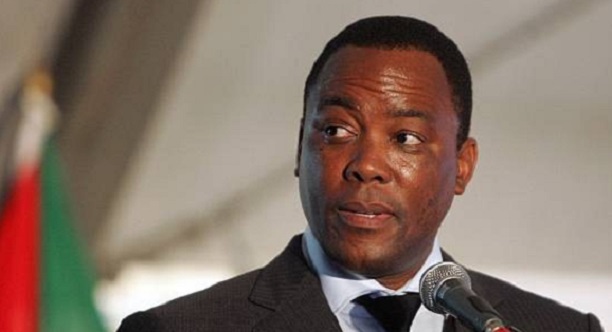Mozambique's President calls for consolidation of "shared citizenship" in CPLP countries
Constitutional Council rejects AJUDEM appeal, all 5 judges present in favour – AIM report

File photo
The Constitutional Council, Mozambique’s highest body in matters of constitutional and electoral law, on Friday rejected the appeal by the Youth Association for the Development of Mozambique (AJUDEM) against the decision by the National Elections Commission (CNE) to disqualify its list of candidates for the Maputo municipality in the municipal elections scheduled for 10 October.
The AJUDEM list aroused enormous interest because its mayoral candidate was Samora Machel Junior (“Samito”), son of Mozambique’s first President. Machel had hoped that the ruling Frelimo Party would select him for its candidate for Mayor of Maputo – but Frelimo opted for 79 year old former Finance Minister Eneas Comiche.
Believing that the inner-party election had not been transparent, and that the bulk of the Maputo Frelimo membership would support him, Machel opted to run as a independent, and accepted AJUDEM’s offer to head its list.
AJUDEM is a grouping of Maputo civil society bodies, regarded as close to Frelimo, and several people on the AJUDEM list of candidates are also members of Frelimo
AJUDEM says that Frelimo officials put pressure on its candidates (including threats that they would lose their jobs) to remove their names from the AJUDEM list. Further evidence for this pressure came in Friday’s issue of the independent weekly “Savana”, which contains the transcript of a discussion between Frelimo official Anibal Macamo and Elidio Mavume, a Frelimo member who was number nine on the AJUDEM list of candidates.
Macamo was attempting to persuade Mavume to leave the AJUDEM list, apparently unaware that the conversation was being recorded. According to the transcript, Macamo offered the AJUDEM candidate 10,000 meticais (167 US dollars) on the spot, and offered to pay his monthly college fees, if he would return to Frelimo.
But neither the CNE nor the Constitutional Council have the power to investigate the reasons for candidates withdrawing from the list. The CNE looked at the list and rejected it on the grounds that there were not enough candidates. Every list for the municipal elections must contain the names of enough candidates for all seats available in the municipal assembly (64 in the case of Maputo) plus three supplementary candidates.
In its correspondence with the Council, the CNE said that the original AJUDEM list had 64 full candidates and six supplementary candidates – but three of these were “irregular”. One simply did not exist, for the list jumped from number 54 to number 56 – there was no candidate numbered 55.
Candidate number eight was registered as a voter in a different municipality, and therefore ineligible to stand in Maputo, and number 63 was missing essential documents that candidates must present.
This reduced the number of AJUDEM candidates to the bare minimum of 67. But then came the withdrawal of four candidates (and on 30 August, a fifth dropped out).
The CNE said that the reason for candidates dropping out was an internal matter for the party or group concerned. Furthermore, it was not the responsibility of the CNE to inform the party or group that its candidates were abandoning the list – although the CNE says that, in AJUDEM’s case, it did inform the group of the first four drop-outs.
AJUDEM argued that it had enough candidates by the deadline for submitting lists, even if some withdrew their names later. It should thus have been given an opportunity to replace them – an argument which was supported by one prominent jurist within Frelimo, Teodato Hunguana, who is also a former judge on the Constitutional Council.
In its ruling, the Constitutional Council admitted that the AJUDEM list did meet the legal requirements for number of candidates at the time it was submitted, and that the law does indeed allow for the replacement of candidates who drop out – but not after the final date for submission of lists.
Full candidates who withdraw their names can be replaced by supplementary candidates – but the Council ruled there can be no replacement by new candidates whose documents the CNE had not previously considered.
The Council did not deal with AJUDEM’s attack on the CNE for its partisan bias. It claimed that the CNE was not the “impartial and independent” body required by the Constitution. This was a blow against the malaise at the heart of the CNE – the fact that it is dominated by the political parties, who vote along political party lines.
In the case of the AJUDEM list, the CNE members appointed by Frelimo voted to exclude the list, while those appointed by the former rebel movement Renamo voted to keep it on the ballot paper.
This problem dates back to the 1992 peace agreement between Renamo and the government, which stipulated that Renamo would appoint a third of the first CNE, which supervised the 1994 general elections. Every subsequent CNE has suffered from the same politicisation, imposed by Renamo. On two occasions (in 2008 and 2012) Frelimo proposed removing the political parties from the CNE, but Renamo rejected the proposal outright, and Frelimo beat a hasty retreat on both occasions.
Many other bodies face the same problem of members appointed by the political parties – including the Constitutional Council itself, where five of the seven members are appointed by the political parties, in proportion to the number of seats they hold in the Mozambican parliament, the Assembly of the Republic.
The Council passed its ruling on the AJUDEM list with all five of the judges present voting in favour (including Manuel Franque, the sole judge appointed by Renamo).













Leave a Reply
Be the First to Comment!
You must be logged in to post a comment.
You must be logged in to post a comment.